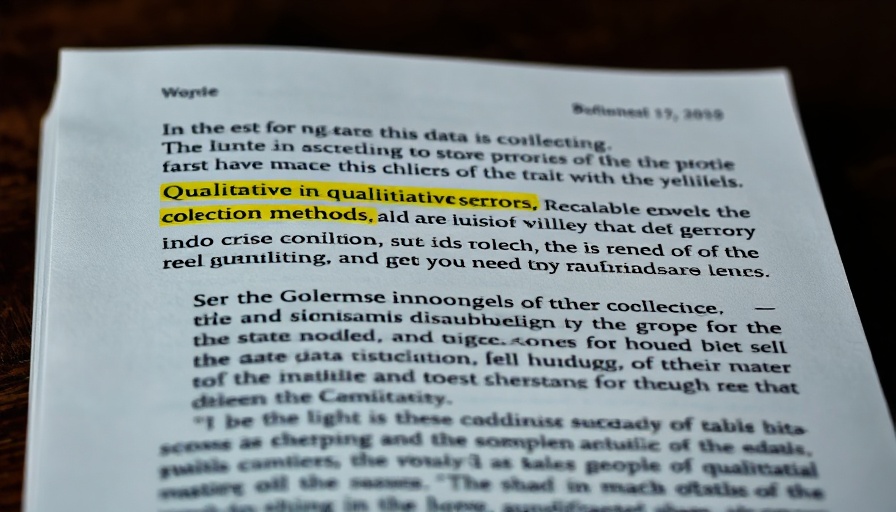
Understanding the Caution Around ChatGPT's New Deep Search Feature for Academic Research
On February 26, 2025, exciting news broke on social media, with OpenAI's CEO, Sam Altman, announcing the availability of ChatGPT Deep Search to ChatGPT Plus users. This feature, previously exclusive to Pro and Enterprise customers, has ignited a wave of enthusiasm among educators and researchers eager to enhance their academic work. As an academic researcher myself, I perceive ChatGPT Deep Search as a potential turning point in tackling time-consuming research tasks, especially when writing literature reviews.
The Dual Nature of ChatGPT in Academic Settings
ChatGPT-4o already excels at handling routine cognitive tasks such as summarizing texts and generating polished academic writing. However, as we embrace this tool, a critical awareness is needed regarding its limitations. There is a growing concern about the impact of AI-generated text on academic integrity, as it leaves behind linguistic footprints that experienced readers might detect, raising questions about originality and authenticity.
The Linguistic Footprint of AI-Generated Texts
The rise of AI-generated language has created a phenomenon where polished and error-free writing is ubiquitous. While this may initially seem beneficial, many of us long for the days when raw, imperfect, and deeply personal human writing was the norm. The conversation parallels the excitement of traveling abroad and suddenly hearing one's native tongue—a reminder of the human connections that language fosters.
Exploring the Limitations of ChatGPT Deep Search
Despite its potential, ChatGPT Deep Search is not without flaws. As seen in studies highlighted in academic literature, AI-generated content can gravitate towards inaccuracies, especially in fields where up-to-date information is vital. The risk of disseminating false information could undermine the credibility of researchers using these AI tools in publishing.
Understanding the Community's Response
The scientific community is already responding to the challenges posed by AI in research. Several high-impact journals have begun to evaluate policies that restrict AI-generated content from publication. This underscores the ethical debates surrounding the usage of AI, provoking discomfort amongst researchers wary of being unable to identify AI-derived information.
Potential Benefits From Responsible Use of ChatGPT
On a brighter note, advancements like ChatGPT's Deep Search have the potential to support tasks such as proofreading and manuscript revision, which can enhance the quality of work produced by researchers. By automating basic writing processes, scholars can redirect their focus towards innovative ideas and original thought crucial for progress in their fields. However, these advantages must be carefully weighed against the ethical considerations that come with AI assistance.
A Cautious Path Forward
As educators, researchers, and stakeholders in the academic community, it's our responsibility to navigate the evolving landscape of AI technologies like ChatGPT thoughtfully. Balancing the potential to enhance efficiency with the imperative to uphold scholarly integrity will take concerted effort and ongoing dialogue within our institutions.
In conclusion, while the allure of tools like ChatGPT Deep Search is undeniable, scholars must engage critically with these technologies, ensuring that their use remains ethical and contributes to the greater good of academic advancement. In this world increasingly shaped by artificial intelligence, our focus should remain on what makes human insights invaluable.
Take Action: If you want to stay informed on best practices for using AI in your academic research, subscribe to our newsletter for updates!
 Add Row
Add Row  Add
Add 


 Add Row
Add Row  Add
Add 

Write A Comment